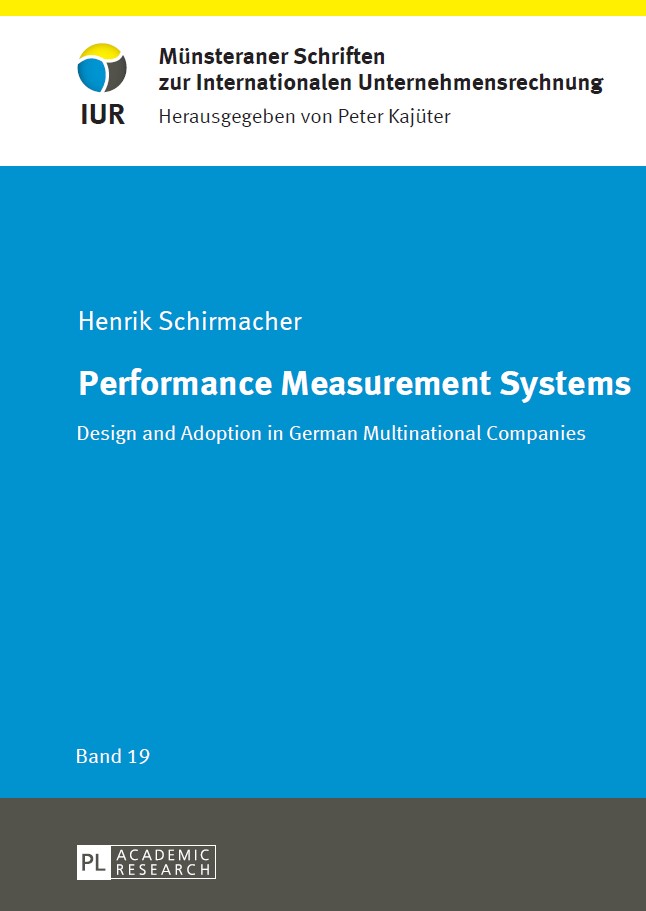Band 19
Henrik Schirmacher – Performance Measurement Systems – Design and Adoption in German Multinational Companies

Performance Measurement Systems (PMSs) are of utmost importance for multinational companies (MNCs). They provide MNCs’ head offices not only with performance information that allows well-informed decision-making, but are also used as tools to influence the subsidiaries’ decisions.
Despite the high relevance of PMSs in practice, the management accounting literature leaves important questions regarding these systems unanswered. First, prior research lacks a detailed description how head offices design PMSs. Second, and even more important, the existing literature has neglected to analyze in depth how head office-designed PMSs are adopted by MNCs’ subsidiaries.
Given these research gaps, this study investigates both the design of PMSs at head office level and the adoption of these systems at subsidiary level. The empirical analysis is based on expert interviews at five German MNCs. Besides interviews with management accountants from the case companies’ head offices, interviews are held with experts from their subsidiaries. In particular, management accountants from ten subsidiaries operating in Europe, South America and Asia are interviewed.
The descriptive results reveal commonalities and differences in the design of the case companies’ PMSs. These commonalities and differences refer to performance measures, targets, link to rewards, and IT infrastructure. For analyzing the adoption at subsidiary level, the study explores how the case companies’ subsidiaries use the PMS and whether and how they develop their own, unofficial PMS. The results indicate that subsidiaries do not necessarily follow the instructions of their head offices in adopting the PMS. For example, subsidiaries use the head office-designed PMS in a ceremonial way, which means that they only pretend to use it. Furthermore, subsidiaries might develop an own, unofficial PMS that serves as an alternative to the head office-designed PMS and that contains different performance measures and targets. Finally, the study explores factors that influence the adoption of PMSs at subsidiary level. The results suggest that both characteristics of the PMS implemented by the head office – such as the relevance of selected performance measures – and peculiarities of host countries and subsidiaries – such as economic and cultural differences – affect the subsidiaries’ adoption.
The study discusses several implications for academics and practitioners working in MNCs’ head offices and subsidiaries.


